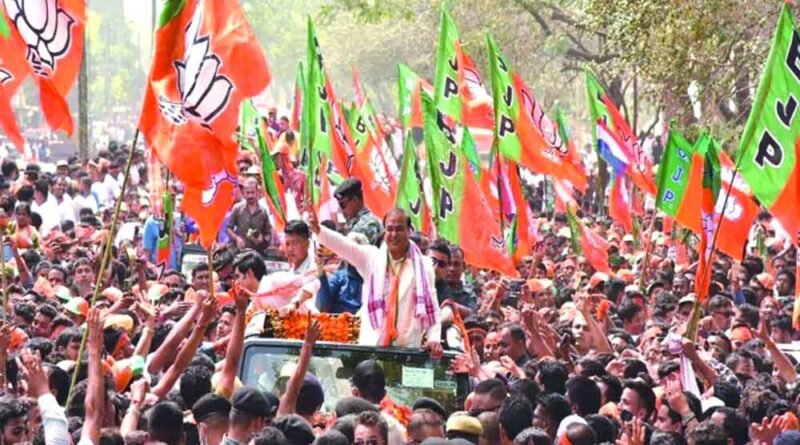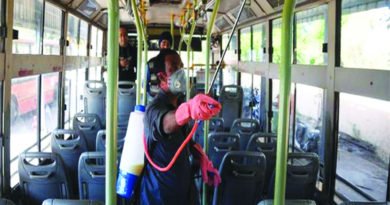The Mizoram way to bettering democracy
Distinct from the poll malpractices seen elsewhere in the country, this tiny State is a shining example of electoral reforms for others to emulate
Perhaps the most influential statement about democracy in modern times was made by former US President Abraham Lincoln on November 19, 1863, when he said democracy is a ‘Government of the people, by the people and for the people’. A robust, zero-error, all-encompassing electoral mechanism is mandatory for electing a Government competent and committed to practising this very essence of democracy in a true sense. Lincoln’s statement also implies that any citizen from any socio-economic spectrum, “having skills and mindset”, has the right to become a public representative. Unfortunately, this is unthinkable today. In fact, the existing political ecosystem demotivates and eventually debars a common man from becoming people’s representative. Two contributing factors to this situation that retrograde democracy are the soaring cost of elections and the yardsticks used for candidate selection.
These days, it is beyond the reach of common man to think of contesting even panchayat or municipal elections on ever-soaring cost considerations. Additionally, the selection of candidates is purely on the basis of caste and community considerations which demean and devalue the essence of democracy. A very dangerous trend has emerged where only a leader from a particular community is believed to articulate and represent the aspirations of that community and is perceived bona fide to become the leader of that community. In contrast, democracy demands, especially in a diverse demographic setup like ours, that any sincere person skilled enough to represent people from across communities and faiths can become their leader. The current situation, instead of aggregating, is polarising communities and is contrary to the civilisation traits of an enlightened society. Moreover, such practices create caste- and community-based leadership (politicians) rather than statesmen.
Of course, democracy should facilitate leadership from all communities, but they should be the leader ‘of’ and ‘for’ all communities. The existing trend is detrimental to the survival of a healthy democracy because politicians think only for the next election, whereas statesmen think for the next generation. Thus, there is an urgent need to democratise the prevailing practices of democracy.
The initiatives made by the people of Mizoram, a tiny State in the North-east sandwiched between Myanmar and Bangladesh, in this context are exemplary, laudable and of far-reaching consequences. The Mizo is a close-knit, casteless tribal society having immense fellow-feeling and cooperation. Let us not wonder as to how a small State with nearly 14 lakh population can offer a solution to this cause since our civilisational discourse teaches us ‘Let wisdom come from anywhere’. In fact, Mizoram was the first State in the country to practice an even-and-odd number cab system in the 1990s, which was copied by the Delhi Government much later.
Worried about the unhealthy and corrupt practices prevailing in the political landscape of the State during electioneering, the churches of Mizoram and NGOs, namely the Young Mizo Association (YMA), Mizo Hmeichhia Insuihkhawm Pawl (MHIP, an association of women) and Mizo Upa Pawl (MUP, an association of senior citizens) entered into a dialogue in 2005 and, after several rounds of threadbare discussions, resolved to reform and make it more democratic. It gave birth to the Mizoram People’s Forum (MPF) in 2006 for conceptualising and implementing public-driven electoral reforms. The key features of these reforms are that the MPF members accompany candidates and party workers door to door to prevent the purchase of votes and distribution of largesse. Only about 4-10 people are allowed during the door-to-door campaign, and candidates and parties are not allowed to organise feasts during elections to lure voters. The MPF provides a common platform in all localities to all candidates for sharing their manifesto, and the local public listens to them and can even question them during open sessions. Volunteers of the MPF fix posters and flexes of the candidates and parties, about four big ones and 20 small ones, in each locality to avoid excessive use of election material.
The MPF volunteers, and not party workers, help voters to locate their rolls in the voter list to avoid campaigns in the neighbourhood of polling booths and to ensure peaceful elections by avoiding altercations. The MPF volunteers take rounds of the localities, especially at night during elections, to ensure that candidates and parties strictly adhere to these norms. The names of candidates and political parties found wanting in respect of these norms are made public through the common announcement system owned by the YMA with a view to defaming them and damaging their electoral prospects. Even written complaints are launched with the State Election Commission against the defaulters.
These measures keep a tab on the expenditure and keep elections within the reach of common man. This system has been religiously practised since 2006 during all parliamentary, Assembly and local body elections. Kudos to MPF volunteers for extending selfless service to strengthen democratic practices in the State. Can this experiment be replicated, scaled up and strengthened by NGOs and social organisations in other parts of the country for practising healthy democratic norms? After all, democracy is an organic system that can only evolve and prosper by reinventing it time and again.
(The author is the Vice-Chancellor of the Central University of Punjab, Bathinda. The views expressed are personal.)
Source: The Pioneer




